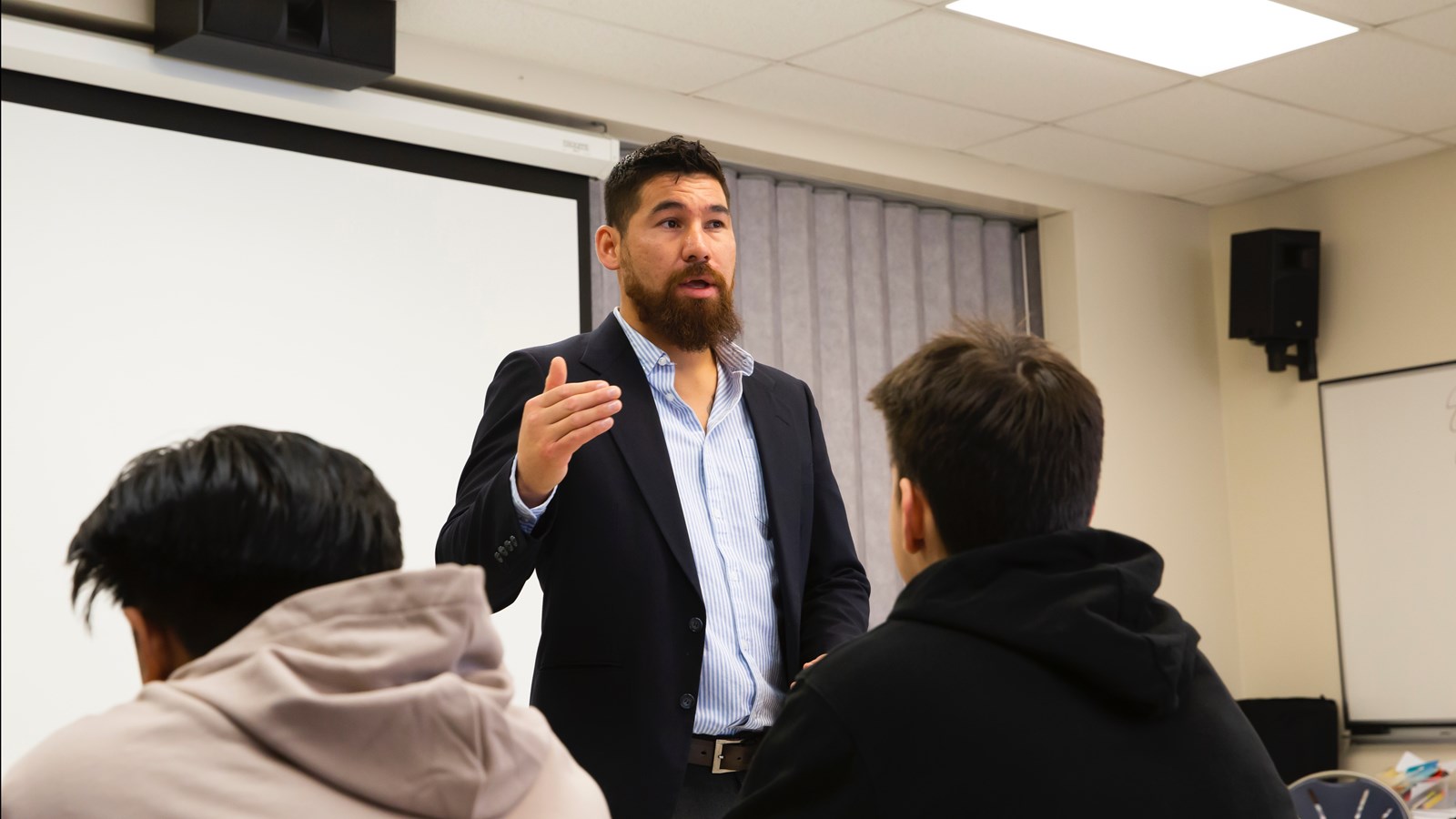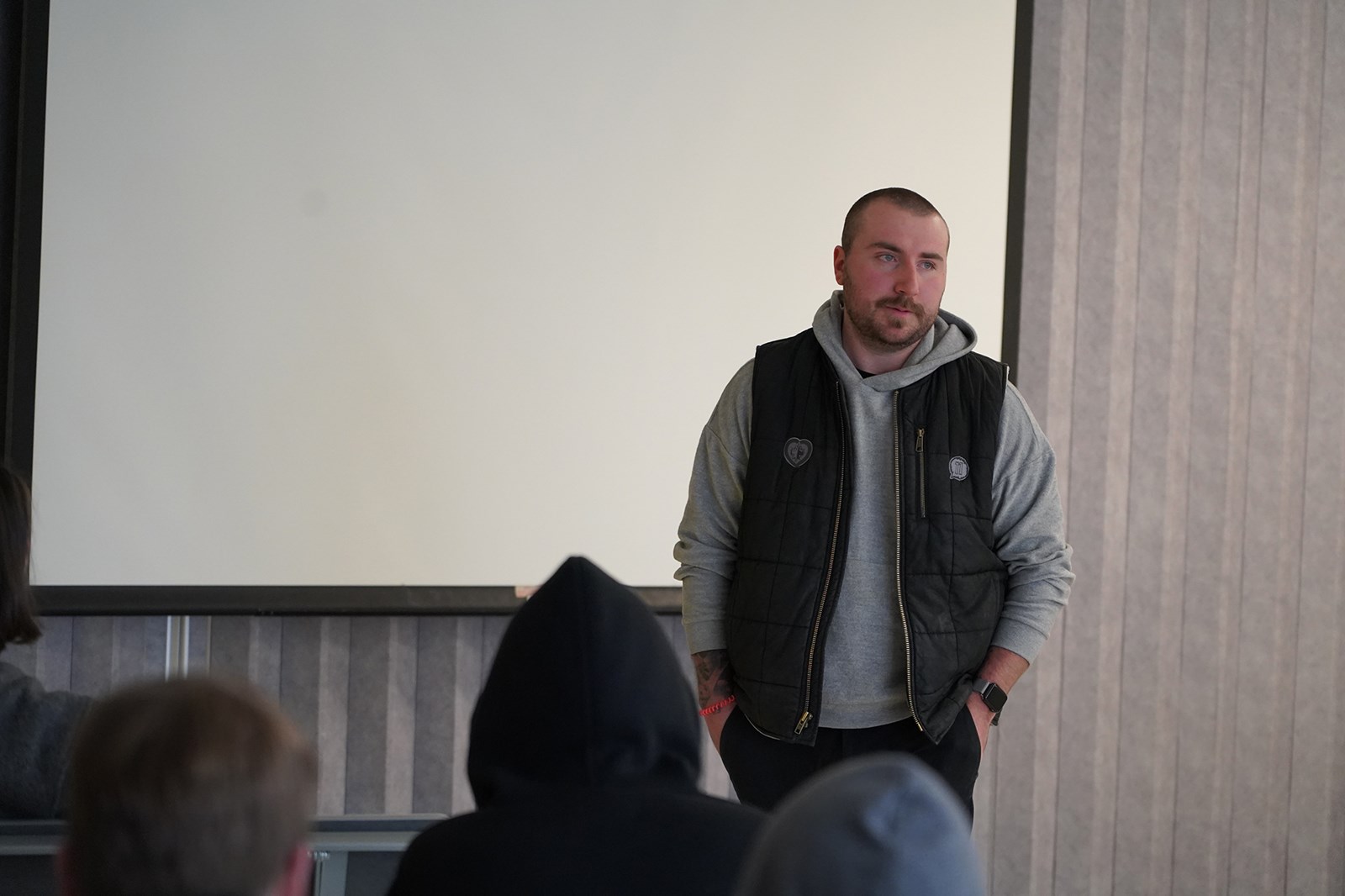Argyle students, staff focus on addictions awareness
December 16, 2022
Students and staff at Argyle Alternative High School recently marked National Addictions Awareness Week with a series of informative guest presenters, workshops and mental health activities.
Canada’s version of the week took place from Nov. 20-26.
“We want to make it normal and okay to talk about addictions,” said Rosetta Troia, a Substance Abuse Counsellor at Argyle. “Just like we talk about science in school, we can talk about the science of addiction, or the psychology of addiction or look at it from any subject area. We try to make it part of everyday conversations.”
Along with hearing from several guest presenters, students took part in positive mental health activities such as yoga and art sessions.
“We also want to talk about activities and strategies you can use to empower yourself, things you can use instead of substances,” Ms. Troia said. “There are different ways to cope with depression, anxiety, trauma and other problems kids can face on a daily basis.”
On Nov. 21, the school kicked off its week with a visit from Zach Heisinger, who spoke on behalf of True North Sports and Entertainment’s Project 11 program. The program, inspired by the mental health struggles of the late Rick Rypien, offers a wide variety of mental health programs and presentations.
“We had amazing feedback from our students on their presentation—a lot of our kids didn’t know about Project 11 before this,” Ms. Troia said. “Some of our teachers are considering piloting Project 11’s new Grade 9-12 lesson plans and curriculum in the classroom.”
 Zach Heisinger speaks on behalf of Project 11. Supplied photo.
Zach Heisinger speaks on behalf of Project 11. Supplied photo.
Other presenters through the week included Indigenous Elder Vern Dano, the Manitoba Advocate for Children and Youth, and community activist Jonny Meikle, who presented on Nov. 23.
Mr. Meikle is a military veteran and former addict who has been clean and in recovery for several years. He came to public prominence for saving the lives of two different Winnipeggers on separate occasions; Meikle intervened to help an assault victim during an altercation on a Winnipeg Transit bus and also saved a drowning woman from the Assiniboine River. He has been an active member of the Bear Clan Patrol and has also established his own support group, Strength in Circles.
“I call Jonny a real-life hero,” Ms. Troia said. “He had his own addictions issues and struggles but he turned his life around.”
Positive mental health
Fiona England, WSD’s Healthy Minds Specialist, praised Argyle’s initiative to have a week dedicated to addictions awareness.
“I was very impressed that Argyle took the keen and innovative initiative to provide a safe space to have some critical discussions about substance use, the potential harms and providing resources and supports to their school community in a positive, shame-free and judgement-free way,” Ms. England said. “We know the alarming statistics regarding mental health and substance use, so bringing awareness to this week by demonstrating healthy coping strategies, meaningful resources and links to culture was a refreshing and proactive take on prevention and intervention. I cannot thank Argyle enough for courageously opening their doors and leaning into critical conversations and potentially saving lives.”
Full-time focus
Ms. Troia has been working as a Substance Abuse Counsellor at Argyle for just over a year and is currently the only full-time, school-based addictions counsellor within WSD.
Both Ms. Troia and Ms. England would like to see similar counsellors at other high schools.
Through WSD’s Healthy Minds programming and various mental health promotion programs, school staff are able to understand and address some of the underlying factors that contribute to addictions and substance abuse issues.
“Addictions counselling includes helping with recovery, relapse prevention and giving students coping tools,” Ms. Troia said. “The reality is, when we are talking about substance abuse, it is not about the substance use, it is about what is going on in students lives that is causing them to use.”
Ms. Troia counsels students on a one-on-one basis and through after-school group hub settings, as well as arranging special speakers and field trips throughout the year. She always encourages parental participation in special events and provides resources for families.
“The whole point is that we want to end the stigma of talking about these issues,” Ms. Troia said. “We want school to be a safe place for that. And when it’s after hours and we aren’t here, we provide resources so that there are other people they can lean on if they need to.”
Ms. England said that substance abuse and addictions-related issues can affect students and families from all walks of life: “We know that there is no postal code for these issues.”
Resources for more information or help
Ms. England added there are plenty of resources for youth to build resiliency and awareness about addictions and substance use-related issues, but it is important to provide plenty of opportunities to learn more.
“Now more than ever, our students need to have opportunities in their schools that destigmatize addiction and to learn about resources and supports that are available to them,” she said. “We know that when people feel stigmatized it decreases help seeking behaviour and we need to change that. Manitoba has experienced an unprecedented number of overdoses, a 95% increase in substance related deaths in 2020 (compared to 2017-19 data) and that number is only rising.”
We want our students, staff and caregivers to know that they are not alone and who they can reach out to for support. Ms. England cited crisis lines such as the Kids Help Phone and the Manitoba Addictions Helpline at 1-855-662-6605. There is also supports through the various new Huddles ( https://huddlemanitoba.ca/about/ ) who provide free addiction counselling and supports.
Caregivers also need to know important resources, such as Mental Health & Addictions or Youth Addictions - Centralized Intake who can be reached at 1-877-710-3999 or by visiting https://matc.ca/services/centralized-intake/ (previously known as the Addictions Foundation of Manitoba).
